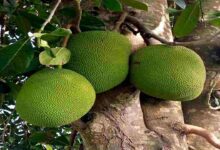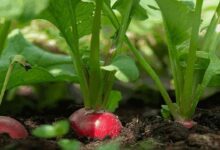Organic Fertilizer: Know the process of making Jeevamrit fertilizer at home, you will get huge profit at low cost
Organic Fertilizer: People are quickly moving away from chemical pesticides and fertilizers in the modern day. The industry is always seeing a rise in demand for crops farmed organically. Nowadays, consumers want to purchase grains and vegetables that are produced chemical-free. Natural farming is becoming a viable choice for farmers under such circumstances. This news is for you if you are a farmer and desire a high harvest without using pesticides.

Natural farming: what is it?
Natural farming is farming without the use of artificial pesticides or fertilizers. This uses entirely indigenous techniques, such as making fertilizers and insecticides from gram flour, jaggery, cow dung, and pee. This yields a crop that improves the fertility of the ground in addition to being good for health.
Create your own organic fertilizer at home
The most crucial component of natural farming is Jivamrit fertilizer. This fertilizer is simple to make at home and is entirely natural. Rakesh Pandey, an expert in agriculture, claims that Jeevamrit is made from the pee and manure of native cows.
The process of creating Jeevamrit
Components:
- Five kilograms of fresh cow poo from an indigenous cow
- Five liters of cow urine
- One kilogram of jaggery
- One kilogram of gram flour
- 200 liters of water
Approach:
- First, fill a large drum or tank with 200 liters of water.
- Fill it with five liters of cow pee and five kg of cow manure.
- Add 1 kilogram of gram flour and 1 kg of jaggery now.
- Using a wooden stick, thoroughly stir the whole mixture.
- For 48 hours, keep the mixture covered and in a shaded area.
- Every twelve hours, give it a stir.
- Jeevamrit will be available in 48 hours, which might be advantageous for your crops.
How should I utilize it?
- Spray this prepared Jeevamrit after mixing it with water at a 1:5 ratio.
- Drip irrigation is another way to apply it to the crops.
- This fertilizer stimulates the soil’s microorganisms and gives the crops vital nutrients.
- An alternative to solid fertilizer is Ghanjeevamrit.
- Ghanjeevamrit is the solid material that is left behind after the liquid portion of Jeevamrit is separated. This is a great organic fertilizer as well.
- The fertility of the ground is significantly increased when Ghanjeevamrit is mixed into the soil prior to field planting.
Natural fertilizer advantages
- An increase in the fertility of the soil
- Higher-quality crops
- A rise in output
- Cost reduction
- Health-safe
- The land’s fertility lasts for a very long period.
What is the need for natural farming?
Grain and vegetable crops cultivated using chemical pesticides and fertilizers that are now on the market may be unhealthy. Numerous illnesses, including cancer, renal issues, and hormone imbalances, might result from consuming them. Conversely, foods grown organically and naturally are nutrient-dense and provide the body with the power to fend against illness.

